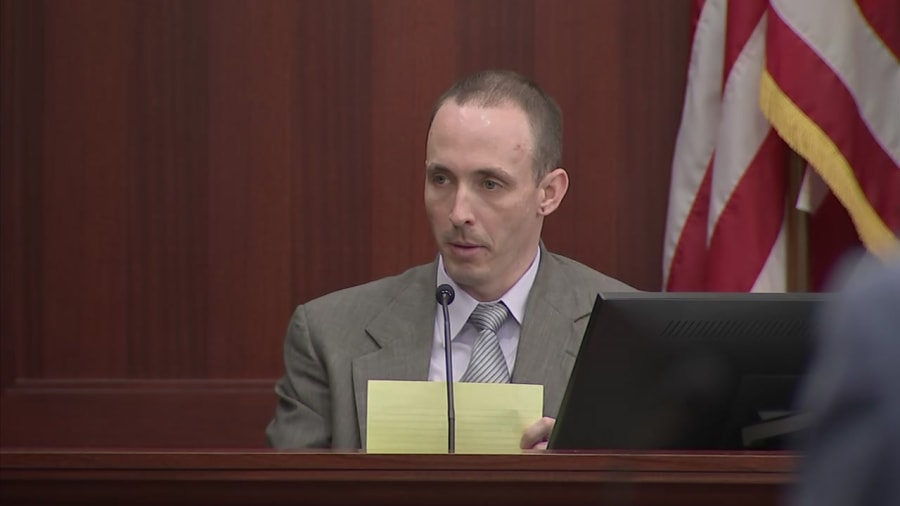NASSAU COUNTY, Fla. – An Army veteran who took the stand during the sentencing trial for Patrick McDowell said that veterans need to know its OK to come forward about their mental health.
McDowell was sentenced to death for the murder of Nassau County Sheriff’s Office Deputy Joshua Moyers in 2021.
The defense argued McDowell’s untreated Post Traumatic Stress Disorder (PTSD) followed by drug abuse led to the killing.
Veteran Daniel White took the stand three days before McDowell seemingly asked for a death sentence.
“Make me pay for it,” McDowell said.
MORE: ‘Make me pay for it’: Deputy killer reads statement before closing arguments in sentencing trial
Daniel White took the stand on McDowell’s behalf.
“This is very difficult for me because I feel like that’s me sitting over there had I not made a different decision,” White told the jury.
“I feel like he did the right thing. I feel like he owned it,” White told News4JAX on Friday.

White agreed to interview with News4JAX after he sent an email saying, in part, “this is larger than just Patrick McDowell.”
“Had I been treating my PTSD properly, I wouldn’t have been using drugs. And I wouldn’t have had run-ins,” White said.
White said he spent a little over four years in the Army. All he ever wanted was to be an Army Ranger.
White was honorably discharged after a serious injury, but not being a ranger sent him spiraling.
“It got really bad once I got out and started using harder drugs and opiates,” he said. “I use the drugs a lot to self-medicate...but it doesn’t make that feeling go away,”
White was arrested for heroin possession in 2019.
The Florida Policy Project, citing the Florida Department of Corrections, said as of October 2023, 3,989 inmates in Florida prisons self-identified as veterans.
MORE: Mentor says he blames himself for the downfall of man who killed Nassau County deputy
That’s 5% of Florida’s prison population. But The Florida Policy Project said that underestimates the true number of people who qualify as a vet. Looking deeper, 43.8% of incarcerated vets committed violent non-sexual offenses, 5.8% are drug-related and 75% of veterans are sentenced to more than 10 years.
“It’s scary because the more trauma you have, then the more people aren’t going to ask for help. And then the more stuff like this could happen.”
It could be personal shame, provider shortages, or a lack of access as reasons why veterans don’t get the help they need.
Some research suggests only about half of all veterans who need mental health care get it.
“There was a lot of times where I was seeking help, where It was like, ‘Oh, we can do it but you know, it’s gonna be 30 days or, you know, two months,’” White said.
He doesn’t want McDowell’s death sentence or lack of help to discourage veterans from coming forward.
“As a result of Patrick’s untreated PTSD, now there’s going to be others that have PTSD,” White said. “There’s a lot of gratitude that I’m where I’m at, you know, and I think with that being said, there is a chance for all, for anybody suffering from mental health disorders or PTSD or addiction.”
This could’ve been the case for McDowell and is possible for anyone else.
The Florida Policy Project identified best practices to improve incarceration and re-entry in Florida.
Some include veteran-specific programs, identifying and giving data on vets in prison, increasing veteran-only housing units, funding the expansion of trauma-informed mental health care and more.

